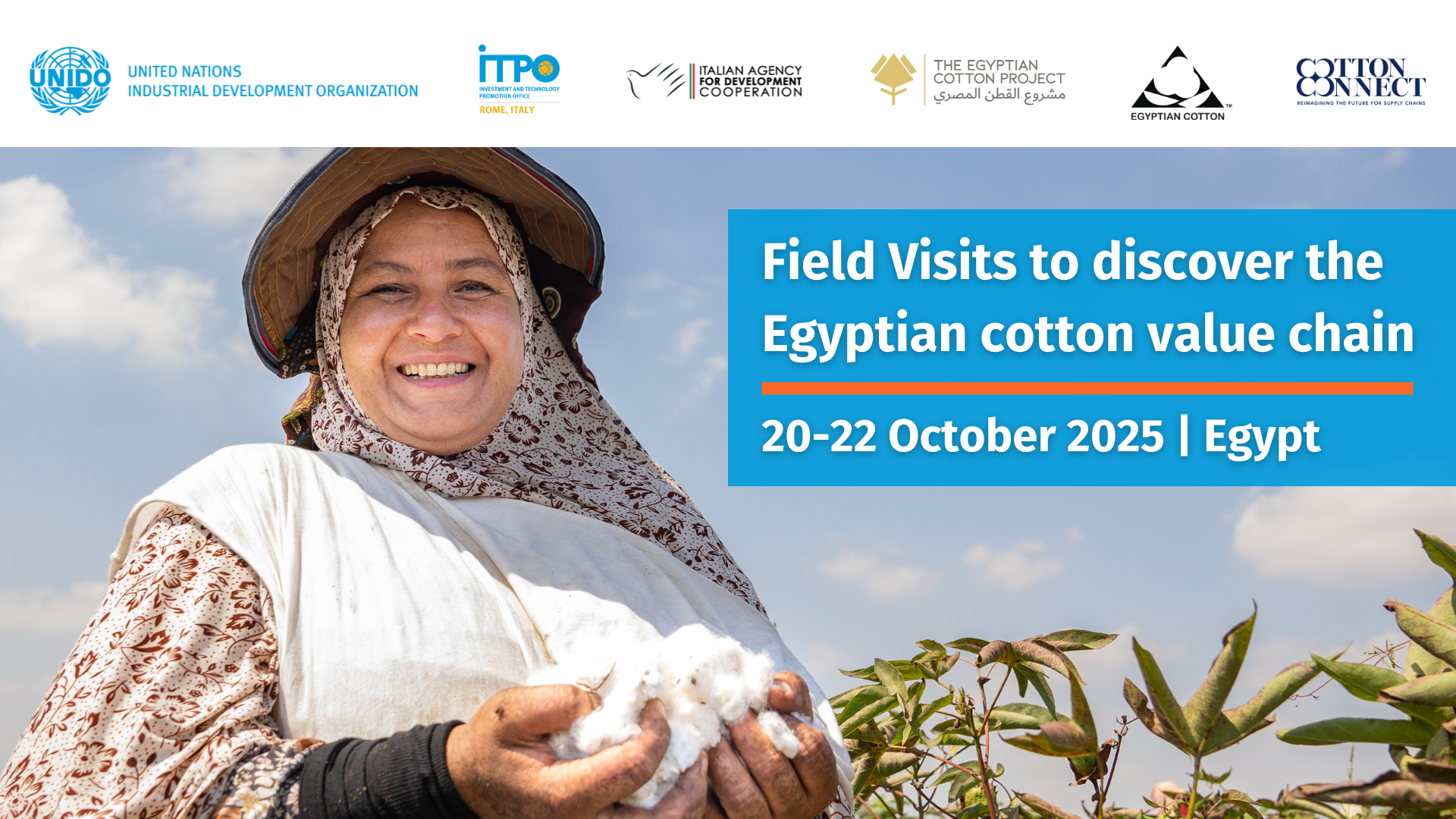The Egyptian Cotton Project – Phase II, implemented by UNIDO ITPO Italy and funded by the Italian government through the Italian Agency for Development Cooperation (AICS) aims at strengthening and upscaling the environmental, economic and social sustainability of the cotton value chain in Egypt. The project actively collaborates with Italian companies that supply renowned brands utilizing Egyptian cotton, ensuring a demand-driven approach that aligns production with market needs.
Cotton in Egypt
Cotton plays a major role in the economic and social development of developing and newly industrialized countries. Same applies to Egypt, where the textile sector is vertically integrated from raw material to ready-made garments. Therefore, the government points to the textile value chain as one of the economic drivers that could boost industrial production, create new job opportunities, and enhance trade balance.
Egypt's textile manufacturing industry is the second largest industry, with a 25% share in the entire apparel sector, which accounts for 3% of GDP and contributes to more than 12% of the total Egyptian exports. Moreover, the sector is employing 1.2 million people representing around 30% of the workforce of the Egyptian industry.
Meanwhile, demand for traceability, transparency, due diligence and sustainability is arising in the global market, as well as legislative requirements are increasing in the Egyptian cotton end- markets, namely EU and US, but the Egyptian cotton-textile sector is not yet equipped to fully comply.
Phase II
Phase II aims at working along the Egyptian cotton value chain, harnessing partnerships with local and international public and private entities to further support its implementation and foster future collaborations.
The project will support cotton growers’ communities in applying sustainable practices to safeguard their first source of income, as well as their wellbeing and to protect their environment. Gender responsive activities will be conducted together with local institutions to strengthen the role of women and improve their livelihoods.
The initiative will continue supporting Better Cotton Program managed by Cotton Egypt Association as well as other regenerative agriculture pilots for possible upscaling, in close collaboration with brands, retailers and their suppliers to ensure cotton uptake.
To enhance the Egyptian cotton value chain, it is of paramount importance to provide skilled labour from production to processing. Therefore, the project will support the embedding of the concept of quality and sustainability in existing educational curricula and trainings, encouraging exchanges with cotton-textile industries.
The project will also assist the cotton-textile industries and relevant BSOs in aligning to new market and regulatory requirements related to due diligence, transparency and traceability. Resource efficiency and environmental compliance are also becoming increasingly a priority for the industry to lower its carbon emissions and to save costs.


